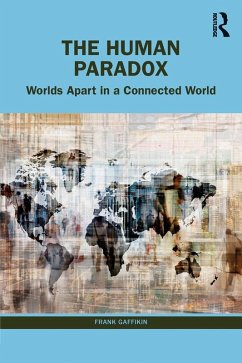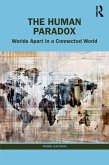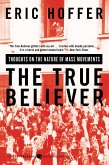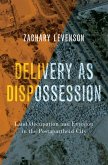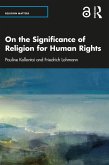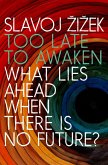The book begins with an appraisal of populism and authoritarian nationalism, and later explores whether, in our human development, we are bound for enhancement or extinction. Interrogating these big ideas further, the book identifies three central challenges that confront us as a society: living on the planet, living with the planet, and living with one another on the planet. These challenges prompt a re-think of what it is to be human and social, and hinging on these key themes, the book thus concludes with consideration of a radical agenda for future social improvement.
Rather than peering through the conventional lenses offered by separate disciplines, this book argues for interdisciplinary appreciation and recognition, especially so if we are to address the dilemma at the center of its concern. The Human Paradox will appeal to readers interested in the major conflicts of our times, as well as students of subjects including sociology, politics, history, and economics.
Dieser Download kann aus rechtlichen Gründen nur mit Rechnungsadresse in A, B, BG, CY, CZ, D, DK, EW, E, FIN, F, GR, HR, H, IRL, I, LT, L, LR, M, NL, PL, P, R, S, SLO, SK ausgeliefert werden.
Professor Emeritus John Benington, CBE, Warwick University.
"A masterful, connect-all-dots interrogation of our polarising and foreboding world. No political, economic, or cultural fault-line is left unexamined in this probing analysis of today's boiling points."
Scott A. Bollens, Warmington Professor of Peace and International Cooperation, University of California, Irvine
"The Human Paradox: Worlds Apart in a Connected World is simply a must-read book. It offers a critical, political, and intellectual discussion of the urgent global challenges we face and also sharply analyses the power of the new world of information and its effect on culture, economy, and democracy. Instead of looking at such issues as populism, climate change, or geopolitical hegemony separately, the book offers an integrative understanding of these challenges and concludes by advancing a radical approach for social improvement in generations to come."
Professor Haim Yacobi, The Bartlett Development Planning Unit, University College London
"The Human Paradox explores the turmoil of contemporary society as viewed through the lens of manifold disciplinary perspectives throughout time. Frank Gaffikin's tome, a tour de force, presents in plain, yet insightful language the clashes of culture, economics, politics, demographics, and technology. His playful references in chapter and section headings reveal a person rooted in the post-war generation and in the context that follows we see his perspective is also firmly rooted in the contemporary world. Gaffikin's insight reveals a deeply probing intellect, yet as he concludes this piece - the first volume of a two-volume project - he offers an actionable policy perspective that is, as he suggests, less hubris and more wisdom in knowing the difference between resistance and resignation. A hopeful reminder that the paradox he uncovers has possible solution sets."
Michael Pagano, Emeritus, University of Illinois Chicago
"No one is an island! Frank Gaffikin draws a remarkable web of thoughts in this book and unpacks the prevailing rage of populism in discussions of tribe, class, and social and economic divisions. He shows an invaluable path forward for humanity's survival on Earth, one cultivated by independent critical thought in education, free of the tensions and simplification caused by binary thinking, and with fuller understanding and embrace of complexity. Only then, to borrow his words, 'a radical form of social democracy' may emerge."
Socrates Stratis, University of Cyprus

